Rodents are unwelcome guests in any home, and for a good reason. Many homes have sighted rats inside their home, and not only are they a nuisance, but they can also pose serious health risks to you and your family. From contaminated food to dangerous disease transmission, it’s essential to be aware of the potential dangers of having rodents in your home.
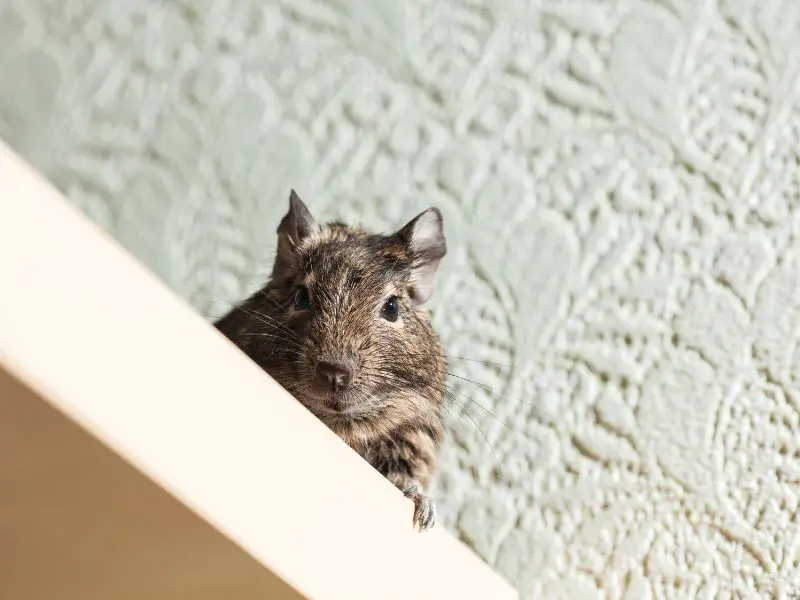
Most Common Rodents in the U.S.
The U.S. is home to many species of rodents, but the three most common are the house mouse, Norway rat, and roof rat. House mice are small (about 2-4 inches long) with greyish-brown fur and black eyes. They prefer nesting outdoors in wood piles or dense shrubbery, but they will enter homes looking for food and shelter if they can find an easy way in.
Norway rats are larger than house mice, typically 8-10 inches long. They have shaggy brown fur and beady black eyes. Like the house mouse, Norway rats nest outdoors but will enter homes if a ready source of food or shelter is available.
Roof rats are the smallest of the three and usually only grow 6-8 inches long. They are black or dark brown with large ears, a pointed nose, and sharp claws. They prefer to nest in attics, ceilings, and wall cavities where they can easily access food sources from within your home.
Here are various health effects of rodents inside your home so you can take the necessary precautions to keep your family safe.
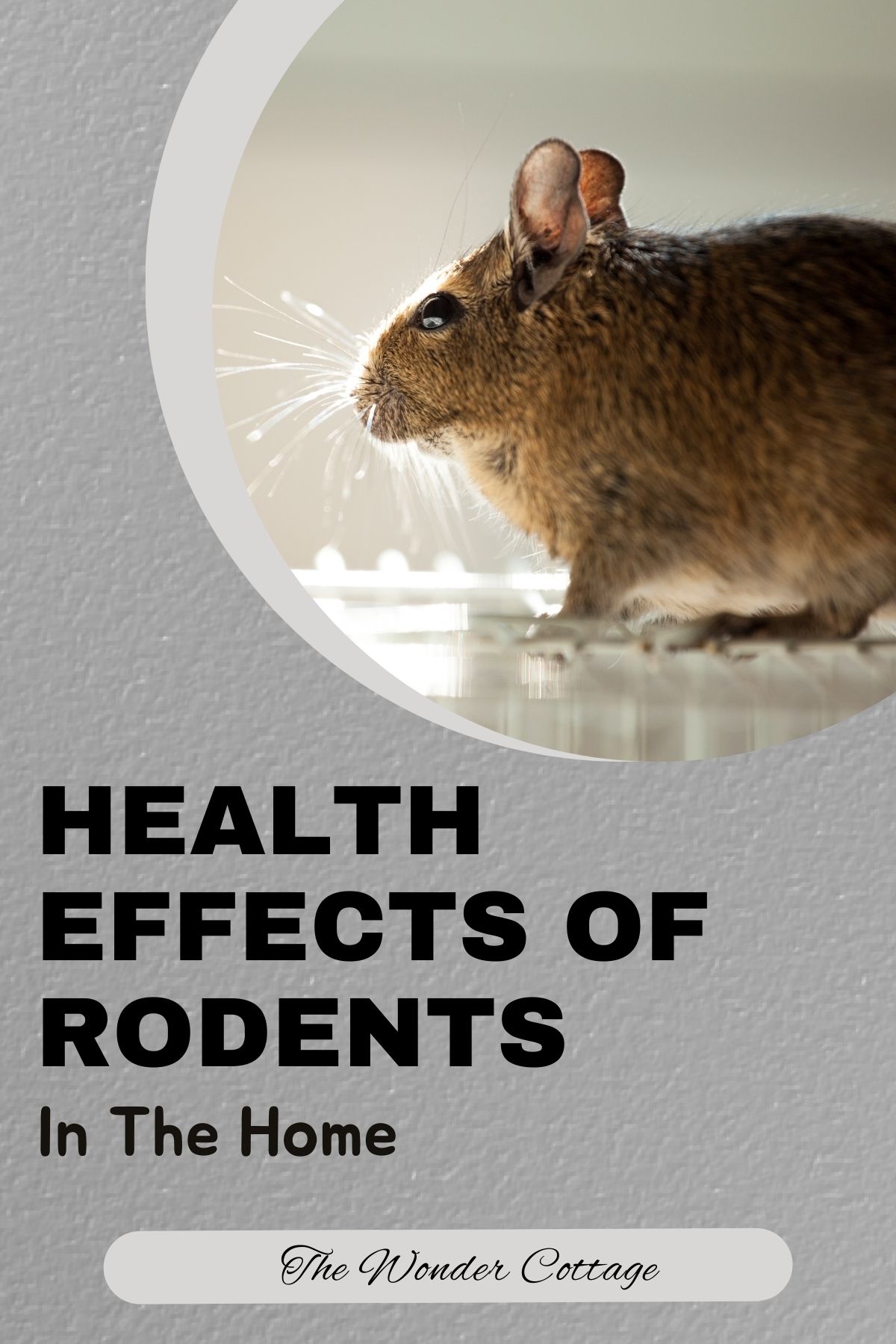
Health effects of rodents in the home
Contamination of Food and Water Sources
Rodents are notorious for contaminating food and water sources, which can lead to the transmission of dangerous diseases. They often leave behind urine and feces, which can contain harmful bacteria like Salmonella and E. coli.
Contaminated food or water can cause serious illness, especially in young children and the elderly. To minimize the risk of contamination, it’s essential to store food properly, seal garbage cans tightly, and immediately clean up any spills or crumbs.
Allergic Reactions and Asthma
Rodent droppings, urine, and dander can also trigger allergic reactions, especially in those with pre-existing respiratory conditions. Exposure to these allergens can cause symptoms such as coughing, sneezing, wheezing, and even asthma attacks. If you suspect that rodents are causing allergy symptoms, it’s important to contact a pest control professional to eliminate the infestation and thoroughly clean and sanitize the affected areas.
Transmission of Diseases
Rodents carry many dangerous diseases that can be transmitted to humans through contact with their urine, feces, or saliva. Hantavirus, leptospirosis, and rat-bite fever are just some diseases that rodents can transmit. Symptoms can range from mild to severe, including fever, diarrhea, and even organ failure. To reduce the risk of disease transmission, it’s important to keep your home clean and sanitary and to seek medical attention immediately if you suspect you’ve been exposed to a rodent-borne illness.
Structural Damage
Rodents can cause significant damage to your home’s structure by gnawing on wires, insulation, and even the walls themselves. This can not only be expensive to repair but can also pose a severe safety risk. Rodents can also cause fires by chewing on electrical wires, so it’s crucial to address any signs of rodent infestation in your home promptly.
Psychological Effects
Finally, rodents in your home can have a significant psychological impact. The sound of scurrying feet in the walls or the sight of droppings can cause anxiety and stress, especially for those with phobias or anxiety disorders. To avoid these psychological effects, it’s important to take swift action to eliminate rodent infestation.
Related Posts
Dealing With Rodents
You must prepare and renovate your home to fight against these rodents. Here are ways to do that:
Change Interior Walls
Rats love living inside walls, so one way to eliminate them is to change the interior walls. Use rodent-proof materials like a WPC wall panel. These wall panels are made of natural fibers and plastic, making it difficult for rats to gnaw through.
Install Wire Mesh
Another way to discourage rodents from entering your home is to install wire mesh at all possible entry points, such as doors, windows, vents, or wall cracks. The wire mesh should be thick enough so that rats can
Trim Trees and Shrubs
Rodents also love nesting in dense shrubbery, so it’s crucial to trim trees and shrubs regularly. This will make it difficult for them to access your home and will help to keep your property free of rodents.
Call a Pest Control Professional
If you suspect you have a rodent infestation, it’s essential to contact a pest control professional as soon as possible. They will be able to assess the situation and determine the most effective way to eliminate the infestation. They may use traps, poison bait, or other methods of control depending on the severity of the problem.
Rodents can be a severe health risk to your family if not dealt with properly. Knowing which rodent species live in your home and their potential health risks is the first step in protecting your family. By taking precautionary measures such as changing interior walls, installing wire mesh, trimming trees and shrubs, and calling a pest control professional, you can help ensure your home remains rodent-free.


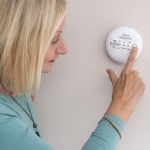
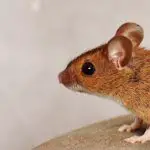

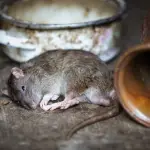
I love your list of different things to try in order to prevent rodent problems at home. Methods like these could really contribute a lot to the overall safety and cleanliness of our home after we get these rats out of here permanently. I’ll use these methods for sure after I hire a pest control expert for some initial extermination.